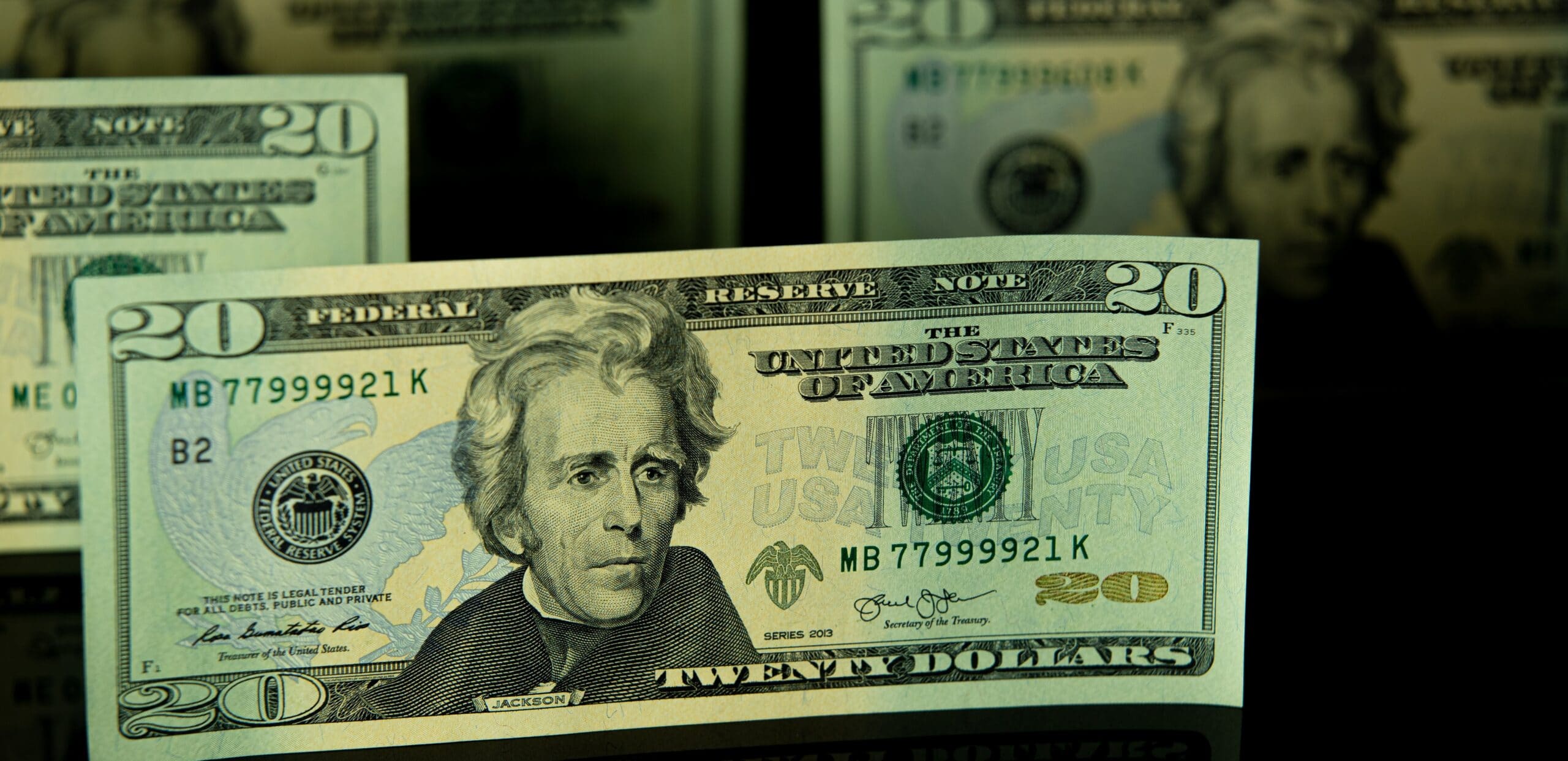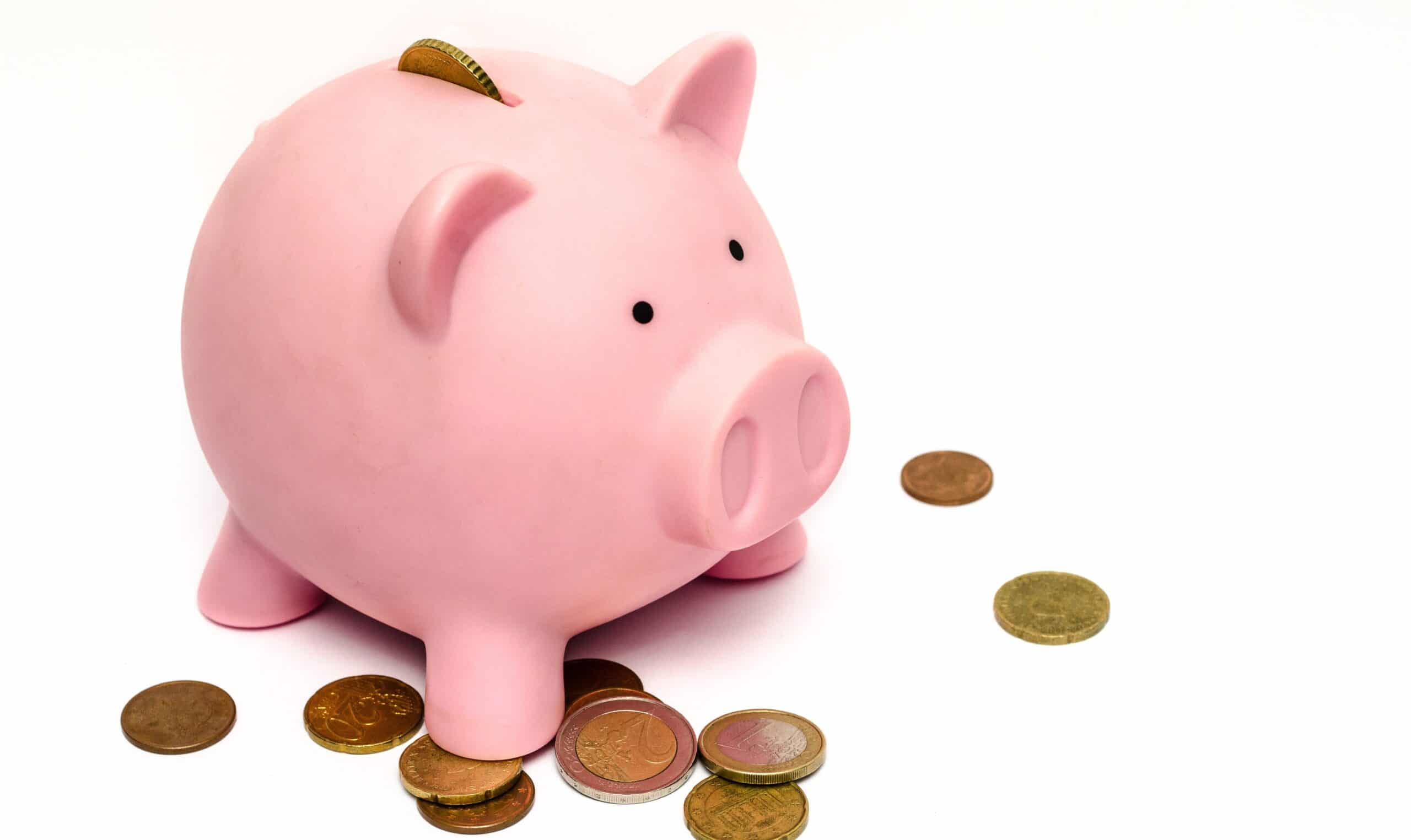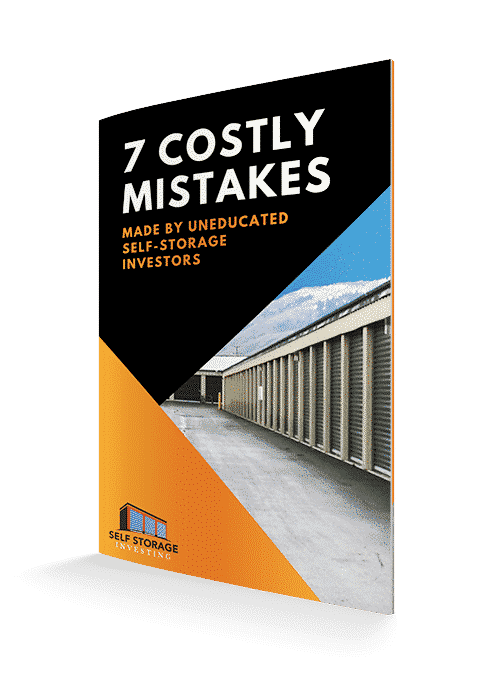In nature, everything has an opposite: winter-summer, birth-death, and light-darkness. In other words, for every definition or concept, there is an antonym. The economy is no exception.
When the economy is thriving and everything is running smoothly, it’s to be expected that people are entirely oblivious to the other side of the coin. However, smart investors do not get carried away by good days; they know from wisdom and experience that what goes up comes down. That is when a clever investor will look into recession proof investments.
All successful millionaires have at least one trait in common: financial acumen. This wisdom allows them to predict when economic winter will come. Tycoons know how and when to make the right moves to protect their portfolio from a recession.
Here below, we’ll delve into investing during recessions and give you a guide on how to recession-proof your portfolios.
What Are the Most Recession-Proof Companies?
Economic downturns are an inevitable part of all businesses. Sooner or later, based on a variety of factors (such as a virulent virus), a recession season sets in, and income streams fizzle or at least decline significantly.
In the fall, deciduous trees like oak drop their leaves. Some businesses react similarly to the recession; they go dormant. On the contrary, just as there are evergreen shrubs in nature, there are recession-proof companies. Statistically, nearly 75 percent of companies suffer a decline in sales when a recession hits, and conversely, 14 percent will actually improve significantly.
“Twenty-five stocks in the S&P 500 ended 2008 with positive earnings,” as noted by CNN. A wide range of variables could affect these specific stocks. Plus, all economic crises are inherently different. But one thing is for certain; if you put all the financial puzzle pieces together, you can learn how to invest appropriately and know which stocks to invest in during a recession to weather the economic storm.
In general, companies that offer high-priority products or services are recession-resistant. In other words, they provide essential goods or vital items that even thrifty customers will buy.
A number of other companies will see an increase in their cash flow because what they offer can meet consumer needs during challenging economic circumstances.
Therefore, as an investor, you should develop an effective strategy to avoid a free fall in cash flow during a bear market. The first and most crucial step is to select recession-resistant companies in which to invest, including:
Staple Items

Our basic needs do not care about economic parameters or the stock market. When you are hungry, you need to eat. After all, a healthy adult needs a 2500 calorie diet to maintain their body metabolism.
Staples refer to everyday items that we consume to meet our basic nutritional needs and hygiene, including food, personal care products, and household products such as toilet paper. Companies that supply these goods are in the necessities sector and are recession-proof.
At the other end of the purchasing spectrum are items that are “nice-to-have” items. Discretionary consumer goods are described as wants rather than needs – they’re the products and services people spend money on when they have discretionary funds. During boom times, this sector becomes stronger and tends to be a profitable investment niche.
Players in the consumer staples sector do not have the highest annual revenue or earnings growth because they are already mature titans of the market. Therefore, their stocks provide a reliable profit and defensive positioning.
Should you invest in consumer staples stocks? The main reason why you should consider investing in consumer staples stocks is the prospect of consistent gains in your portfolio. This segment is one of the most lucrative ones compared to returns by other sectors over the long term.
Stability is an attribute associated with consumer staples stocks. These companies provide goods and services that are integrated into our daily lives. Therefore, the sales and earnings of these items grow in tandem with population growth.
More straightforward prediction is another reason for investing in this sector. The consumer staples sector has not only performed strongly over the long term but also has the least volatility. Since the day-to-day fluctuations in this sector are minimal, its stock market behavior is much easier to predict.
As mentioned earlier, the consumer staples sector produces essential items that we use every day. When you invest in these stocks, you are in effect buying what you have experienced or at least know some details about. If you invest wisely, you will be strategically privileged in the stock market.
A considerable dividend is an attractive feature of consumer staples stocks. Players in this sector pay attractive dividends. Their dividend yield usually exceeds the 3 percent mark, which generates a hard to ignore worthwhile profit.
Grocery Stores and Discount Retailers
When the Great Recession hit, nearly 8 million people became unemployed, and American household income dropped by 4.2 percent. During bad economic times, most people think twice about what they can afford. Priorities change, and people tend to buy more inexpensive food and essentials.
This is why discount stores and grocery chains seem to be recession-resistant, especially during the ongoing Covid-19 pandemic, when quarantine regulations prevent restaurants from operating normally.
Walmart, Dollar Tree, Kroger, and Costco are among the best-known discount retailers in the United States. All combined, their annual sales exceed billions of dollars.
Most of these companies operate internationally, and as is the case with most well-known brands, investors have peace of mind knowing what they are investing in (like Walmart, whose earnings per share have nearly consistently risen over the last two decades).
Pandemic impact and disappearance of competitors: Perhaps some investors may be a bit concerned about the decline of brick-and-mortar stores because of online behemoths such as Amazon. But discount-chains like Ross enjoy rising market shares and consequently higher profits as smaller competitors disappear.
New online trends have also developed. The Covid-19 pandemic has emerged as a powerful force affecting every aspect of the economy, including brick-and-mortar grocery retailing. The juggernauts immediately recognized the importance of shifting their focus.
For example, Walmart was stocked with a wide selection of essentials and low prices, making it a go-to destination for customers who lost their jobs due to the pandemic. They also made a smart move and introduced Walmart+, the company’s online initiative to compete with Amazon. Walmart has other weapons in its arsenal to vanquish its rivals, including size and brick-and-mortar stores.
In short, by investing in discount retailer stocks, you will add shock absorbents to your portfolio, therefore making your investments more flexible.
Cosmetics/Beauty Industry
We inherently love beauty, so it’s completely understandable why everyone wants to look good. And people are turning to beauty even during economic downturns.
Have you ever heard the term “lipstick effect”? This term describes the stability of the cosmetics sector. The lipstick effect states that people do not spend money on various items during an economic downturn due to shifts in their priorities. However, this does not apply to the sales of lipsticks. The idea is that women have an inherent desire to look good, whether formed internally or socially-based. At the same time, beauty can alleviate some of the stress/anxiety associated with financial problems.
Some analysts dismiss the idea that the beauty industry is recession-proof. They describe the beauty industry as a business that specializes in luxury. And it’s evident that during economic difficulties, luxurious items are the first to be eliminated. However, this is far from the truth.

You can check/verify the numbers yourself. The number of barbershops and beauty salons in the U.S. increased by 18.6 percent and 14.4 percent, respectively, in 2009 compared to 2007. Moreover, the hairdresser was one of the top job titles in 2009 (Source: U.S. News & World Report).
For someone who has lost their job, looking good is crucial. An unemployed person is looking for new job opportunities every day and is frequently on the go from one interview to the next. As a result, they need to look polished.
Covid-19 had a recessionary impact on the cosmetics/beauty industry. However, the dynamics of the ongoing economic downturn is varied, with one part of the beauty industry reacting differently compared to the last recession. Some cosmetics/beauty companies underperformed in 2020 due to Covid-19 quarantine regulations (closure of clinics, beauty salons, etc.) Even though life has returned to somewhat normal in most parts of the world, customer traffic is still below average.
Economic hardship and unemployment have affected spending patterns, and some components of this sector have been affected. The use of masks and social distancing has reduced people’s interest in using certain beauty products.
Moreover, travel restrictions induced by Covid-19 have hit the tourism sector, playing a significant role in increasing the consumption of some beauty products and disturbing the supply/demand balance.
On the other hand, however, customers who have increased awareness regarding the pandemic are also determined to look their best and hence have stimulated demand for hair, skin, and other cosmetics/beauty products. The international market for cosmetic skincare products is predicted to grow at a compound annual growth rate of 4.5 percent over the next five years.
Death & Funeral Services
With 21,000 funeral homes and 105,000 employees, the death care market was estimated at $28.7 billion in 2020 and is expected to reach a total revenue of $68 billion in two years, with a compound annual growth rate of 4 percent.
Large portions of this industry are owned by some medium/small companies and family-run funeral homes. However, if it is to function as recession-resistant, this traditional business must evolve from its current archetype into a modern version compatible with new technologies; the majority of family-owned funeral homes do not offer online services, which is an essential tool in the 21st century.
Thanks to lower costs, the number of people opting for cremation instead of burial is steadily increasing. Cremation costs $700-1000, and a traditional funeral is ten times more expensive; $5K can be saved. Many other ancillary businesses, such as tombstone makers and hearse drivers, can also be negatively impacted by cremation. Even those who opt for a traditional funeral tend to buy cheaper caskets during a recession.
Despite everything, death is inevitable. Therefore, funeral service providers will always see a constant supply of business.
Investing in companies that offer funeral services, like Service Corporation International, is another way to protect your portfolio from recession. However, you cannot be sure whether investing in funeral service providers will pay off.
Some of the market players seem to have acceptable performance. Considering the expected market growth and certainty of death, you can choose this business as a balancing factor and part of your portfolio diversification strategy and make a recession-proof investment.
Healthcare
Due to its nature, healthcare has never been off the list of recession-proof investments, and healthcare stocks have had a positive outlook for at least the last three decades. The reasoning is obvious, every living species in this world gets sick at some point, and we humans are no exception. Our bodies or pathogens do not understand economics. But from an investing perspective, does it mean a win?
Between 2008-2012, the beginning and end of the last recession, annual growth in health care spending fell from 8.8 percent to nearly half, at 4.2 percent, compared to the 2001-2003 period. Experts see this as a positive correlation between economic downturns and lower spending on medical services.
However, employment in this sector was one of the few promising aspects in a disappointing job market. At the time, other sectors contracted significantly, and many lost their jobs, but the healthcare industry added 852,000 jobs, a 6.6 percent job growth, between 2007-2009.

This sector had one of the fastest growth rates in the country from 2001-2014 and safely survived two economic downturns. Employment in the health care sector increased by over 30 percent during that period.
It is estimated that the number of jobs in this sector will increase faster than average, at nearly 14 percent over the next seven years. Additionally, the demand for personal health care assistance will increase 36 percent as baby boomers begin to age.
The impact of Covid-19: When the Coronavirus hit, forcing the government into a shutdown, the disease raised doubts about the healthcare sector’s economic resilience. The economy contracted, and resources were devoted to Covid-19. As a consequence, healthcare spending fell, doctors were forced to close their practices, at least for a limited time, and employment in the sector plummeted.
Prospects: Looking at the overall healthcare sector market, healthcare stocks have underperformed. Right now, market participants are watching the healthcare sector closely in light of several pharmaceutical companies having received FDA approval to mass-produce Covid-19 vaccines. Several others have applied for FDA approval (expected to soon be approved).
As life slowly returns to some semblance of normalcy, the prospects for the healthcare sector seem promising. Thanks to scientific advancements in medicine, the average life expectancy has increased over the past decade, meaning a higher number of seniors in the U.S. Hence, the demand for this business will be constant and consistent, which can translate into more potential earnings per share for investors.
Self-Storage Industry
Many factors affect the ability of real estate assets to generate wealth, including market stability. Fluctuation and volatility are two phenomena associated with the real estate market during the pandemic.
As uncertainty becomes visible on the horizon, investors begin to look for safe havens, and the self-storage sector can appear like a relief.
Covid-19 is our new invisible enemy, but its effects are eye-popping: downsizing, divorce, dislocation, and death. These coronavirus derivatives may be scary and apocalyptic for various businesses, but they can be a blessing for the self-storage industry.
When schools, colleges, and universities close their doors or businesses have to shut down, many students, teachers, and employees face an additional problem: the extra belongings and lack of enough room at home. Many solve this problem by turning to self-storage. As a result, the demand for self-storage units has skyrocketed.
A quick glance at the numbers shows one thing very clearly: the self-storage sector is one of the most sought-after approaches when it comes to real estate investment. At 60-70 percent, self-storage’s net operating profit margin is one of the highest compared to other real estate properties. Self-storage construction spending has increased 5.84 times over the past five years.
As lucrative choices and recession-resistant properties, self-storage units have been the target of some “big players” in the investment world. Independent real estate investors are also opting for self-storage units as a recession-proof investment approach.
Because the rent and other expenses of a self-storage unit are a tiny fraction of a business’s monthly costs, recession does not affect demand in this sector. During the 2008 recession, self-storage was the only sector of real estate with a positive return of 5 percent.
Online Shopping Services
Online shopping services were on the rise long before the Covid-19 pandemic onset and its disastrous impact on the economy. Online sales outperformed traditional brick-and-mortar retail in 2019 and are expected to reach 22 percent of total retail sales in the next two years.
After the Coronavirus outbreak, the economy was greatly affected. For example, the tourism industry was hit hard and devastated, while online shopping increased significantly.
Amazon, the largest international provider of online shopping services, saw its market capitalization grow more than 60 percent, and the third-quarter revenue of Shopify, a Canadian e-commerce platform, increased by 96 percent.
During the Covid-19 Pandemic in the U.S, e-commerce services drove a sales boom in other markets, including toys, electronics, and healthcare products. On the other hand, sales of outdoor entertainment items fell.
Will this trend continue after the pandemic is over? In-person shopping was formerly the dominant trend in the market. After the pandemic outbreak, a new pattern appeared: online shopping.
Covid-19 is capable of causing a mutation in the genes of consumers by altering their buying habits/behaviors. Various markets are struggling to adjust to the possible long-term consequences of the Coronavirus. It is expected that the impact of the disease on the economy will not be short-term.
Many smaller retail stores are also going out of business due to the new e-commerce trends and a lack of sufficient cash flow. Therefore, it will become more difficult to shop the old way. The experience of lifting quarantine regulations in various countries worldwide has already revealed that customers are not interested in flocking back to retail stores.
Online shopping should become the dominant determinant in marketing strategies. The pandemic catalyzed this evolution process of e-commerce in almost every niche. All major brands are migrating to online shopping platforms at an unprecedented rate.
From an investing perspective, this evolution opens doors for wise investors. Remember, there are tremendous opportunities both domestically and internationally. Investment approaches always come with risk as we do not know for sure how their stocks will perform in the short term, but one thing is certain, they will be profitable in the long run since the future belongs to them.
The Federal Government
Conservative investors can turn to various federal bond funds to diversify their portfolios, especially during recession times. This can be a relatively safe investment strategy because there is no credit risk since the government can do almost anything in the economy, including raising taxes or modifying interest rates. In other words, the government is not insolvent.
The Government National Mortgage Association, or “Ginnie Mae,” backs mortgages; consequently, bond funds that invest in mortgages are guaranteed by the U.S. government. Similarly, the majority of other mortgages (typical mortgages for low-income borrowers or first-time homebuyers) are backed by the Federal Housing Administration.
Local governments in various states establish municipal bond funds. Therefore, these bond funds can be considered a safe investment.
From a risk assessment perspective, government-backed bond funds are safer, but municipal bond funds are still a safe investment option in times of a pandemic.
Sin/Vice Products
Vice-related products are other members of the recession-proof category. People are always looking for loopholes to escape tough economic times, even if temporary. Sin products like alcohol, tobacco, etc., provide short-term buzzes by making life more enjoyable.
During an economic downturn, almost everyone skips buying a new pair of fancy shoes or a car; instead, they reach for a pack of cigarettes or drinks. Some even consider marijuana because it’s cheap and legal, depending on your state.

Consumers take refuge in vice products to ease the unpleasant effects of a disrupted economy and lower cash flow during a recession or pandemic. Giving into vices helps ease their worries, stress, and pain (at least for a little while). More customers who buy bottles of tequila or packs of cigarettes means higher demand for sin industry products, which translates into increased cash flow for companies producing them and better stock performance for investors.
Data analysis of recent recessions demonstrates that changes in the unemployment rate are positively related to changes in binge drinking, as many may turn to drink to ease their pain during economic downturns. Due to high demand rates, distilled beverages and other alcoholic beverages are considered high margins.
In recent years, some larger companies have purchased the majority of major international beer brands. For example, Corona and a few other brands have been bought out.
The Statics
In each market category, you will see a list of companies that are neutral in a recession. They do not experience a significant boost like online shopping platforms or retail stores, but their sales record doesn’t catastrophically collapse either (like the travel/tourism industry). These static businesses persist with slow but constant growth even in tough economic times.
You may be wondering why this is. Statics are players that provide products/services with inelastic demand; consumers will buy these types of goods/services even in case of price hikes. For example, there is always a steady demand for garbage collection/waste disposal. Also, people still use electricity even if other sectors of the economy are not doing well.
Regardless of personal financial reviews or transactions on the New York Stock Exchange, consumers need these inelastic products/goods. You can view this category as part of a larger game plan; you add shock absorbers to your portfolios by investing in static.
What Sells Best During a Recession?
It’s not news that the economy has slowed due to the Covid-19 pandemic. If we want to figure out which stocks do best or how the market performs during/after a crisis, we need to look back at recent recessionary periods.
In the history of U.S. investing, the 2007-2009 period was one of the worst economic downturn periods, known as the Great Recession. GDP plummeted 4.3 percent, and the unemployment rate rose sharply to 10 percent. Despite all the disappointing trends, some players managed to perform strongly in the 2008 crash, including Dollar Tree, Ross Stores, H&R Block, Vertex Pharmaceuticals, Hasbro Inc, and several others.
What Can We Find Out?
By looking at products from these companies, we can figure out what sells best in a recession. When cash flow drops, budgets are slashed, and scarce funds are spent on necessities. For example, the need for healthcare accessories is constant; simple medical supplies like masks, gloves, first aid kits, etc., will sell the best.
During a pandemic or economic hardship, people tend to stay at home more; thus, they get bored. Selling inexpensive toys and entertainment/leisure goods worked for Hasbro during the Great Recession; it can work now.
You can work out an approach by combining several of the above parameters and start your own business. For example, we know that online shopping is on the rise; therefore, cheap entertainment/leisure goods can easily be offered through Amazon or other platforms.
Sales of do-it-yourself items have increased during past economic crises; for example, Tractor Supply, Sherwin-Williams, and others have performed well. Throughout 2020, service-based businesses such as gyms remained closed due to mandatory quarantine regulations.
This means, during recessions or pandemics, people resort to doing some tasks themselves. Hence, they save money and keep themselves busy. Personal sports training or sharing tips on fixing appliances can be a lucrative choice during a recession.
Ways to Invest During a Recession
In an economic upheaval, you may panic; it’s a normal reaction, but fear can cloud our judgment and lead to counterproductive decisions, significant losses, etc. There are some rules you should follow and proven methods to make recession-proof investments:
Be Patient
A bear market will not last forever. The economy has gone through some rough times in the past and prospered again; if you want to choose a wisely-crafted investment plan, factor in the bumpy road of a recession.
Spread the Risks
To reduce the risks of exposure to any one area, try to diversify your portfolio. Cash and bonds offer safety, especially during a bear market. Diversification allows you to dilute risk factors while benefiting from potential upswings.
Review Investments Thoroughly
You should verify the background, net worth, earnings per share, etc., of companies. Those with strong balance sheets can be attractive candidates. Look for firms/entities with high demand for their services/products, regardless of market conditions. For example, the staple food sector is considered recession-resistant.
Ask the Experts
If you are a novice or have recently started, ask the experts. They can help you choose the right stocks or bonds. You can approach experienced investment professionals, seek their advice, share your objectives with them, etc. They will advise you on how and where to start depending on your risk tolerance.

The Bottom Line
The economy’s course is somewhat like a sine curve; booming days are followed by the hard days of a recession. An inevitable rainy day for markets includes free falls in cash flow and spikes in unemployment.
As a business owner or investor, you should take some precautions or watch the downfall of your investment. You should consider recession when you design your investment strategy.
Ensure that the sectors you want to invest in are capable of surviving an economic downturn and beyond. Diversification is the key to all successful investment approaches.
There are some recession-resistant companies that you can consider investing in. The companies that provide low-cost essential goods and services are generally safe and can weather recessionary storms. For example, necessary food items or storage units for your belongings are necessities.
To recession-proof your investment, you can study previous economic downturns and bear markets. Gather as many tips and information as you can and always inquire from the professionals. Our experienced experts in self-storage investment – one of the best investments to make even in a bear market – are always ready to advise you on your investment objectives and share their knowledge with you. We’ll be sure to help you make a recession-proof investment!






